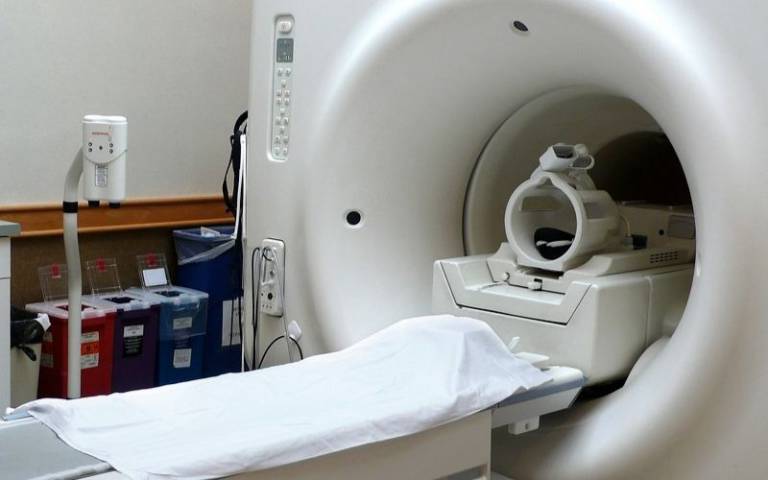Prostate cancer guidelines changed to reflect UCL trial findings
10 May 2019
Leading cancer researchers at UCL, who led the award-winning research which found that MRI scans and targeted biopsies are better at making a positive prostate cancer diagnosis than standard biopsies, are delighted the UK’s medical guidelines have been changed to reflect this.

Formal guidance published by the National Institute for Health and Care Excellence (NICE) (09/05/2019) approves multiparametric MRI (mpMRI) as a first line investigation for men suspected of having clinically localised prostate cancer.
The cutting edge technology can produce a detailed image of the prostate which can help specialists decide whether a biopsy is needed.
For those men at very low risk of cancer, this type of imaging can prevent unnecessary biopsies which can be unpleasant and have a risk of infection.
The scan has also been recommended as an option for people who have active surveillance to monitor the cancer.
The decision by NICE, follows two clinical trials (PROMIS and PRECISION) led by UCL in partnership with University College London Hospitals (UCLH). The PRECISION trial won UK Research Paper of the Year at last month's 2019 BMJ awards
Professor Caroline Moore (UCL Division of Surgery and Interventional Science), who led the PRECISION trial, said: “This is fantastic news and means all men at risk of prostate cancer will now have an MRI scan before any biopsy.
“By having access to high quality MRI at the outset, doctors will be able to safely reassure men at lowest risk, and identify men most likely to benefit from treatment.”
“UCL has led the evidence gathering for MRI in men at risk of prostate cancer and it is great to see the UK being the first country to make a formal recommendation that it should be used in all men prior to a biopsy. The challenge now is to ensure the availability of high quality MRI across the NHS,” Professor Moore added.
Approximately 130 new prostate cancer cases are diagnosed in the UK every day and in 2016 alone, 11,631 people died from the disease. Advances in imaging technology have already led to changes in current practice across the country following the need for better diagnostic tools.
UCL’s Dean of Medical Sciences, Professor Mark Emberton, who oversaw both the trials, said: “We have been using MRI for men at risk of prostate cancer at UCL and UCLH for a decade, and it is heartening to see our research has come to full fruition with this unequivocal guidance, meaning all men will now get access to this cost-effective and transformative technology.
“Our PROMIS and PRECISION studies have shown MRI scans will result in fewer unnecessary invasive biopsies for men, and fewer important cancers missed.”
He added: “MRI for all men prior to biopsy of the prostate is the most important development in the management of men with early prostate cancer that we have had in the last 100 years.
Multiparametric MRI is clinically effective as it will reduce the number of biopsies performed. Additionally, cancers are more likely to be detected and identified earlier therefore reducing the need for further treatment.
Health economic evidence shows that MRI-influenced prostate biopsy may be more cost effective than systematic prostate biopsy as it takes less time and is more efficient in identifying clinically significant cancer.
Links
- Professor Mark Emberton
- Professor Caroline Moore
- UCL Medical Sciences
- UCL Surgery & Interventional Science
- PROMIS trial
- PRECISION trial
- NICE
Image
MRI scanner (Credit: Liz West, Source: Flickr)
Media contact
Henry Killworth
E: h.killworth [at] ucl.ac.uk
Tel: + 44 (0) 207 679 5296
 Close
Close

